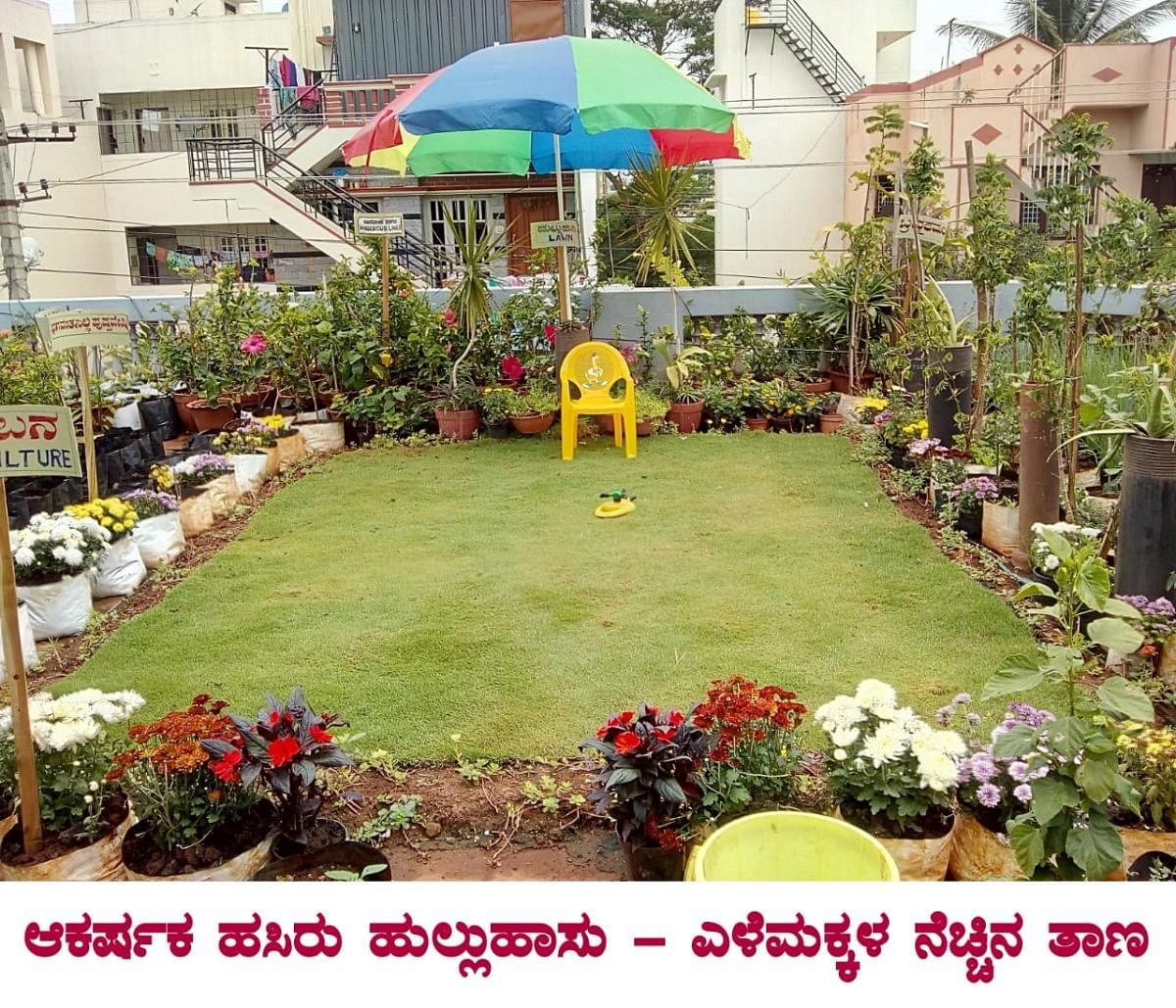
Professor Rudraradhya, a septuagenarian who does gardening passionately, spends much of his time tending to the diverse plants on his 50 X 30 feet terrace in Mysuru. This agriculture scientist is credited with developing the popular ‘one-acre model’, an integrated farming system, for the small and marginal farmers of the state. Now, after retirement, he has meticulously planned his garden in a similar way.
On an average, he and his wife, Hemalatha, spend two hours in the morning and the same amount of time at dusk nurturing the plants in the garden. The couple believe that every household should grow vegetables to meet the family’s requirement. They have not only worked towards it but are helping those interested as well.
Diverse flora
What can be grown on a terrace? Several types of vegetables, various types of flowers and fruits, and the list goes on. “We harvest at least 8-10 types of vegetables every week. Whatever we get in excess, we share with our neighbours,” says Rudraradhya. Strawberry, dragon fruit, fig, mango, papaya, passion fruit and grapes are some of the fruits grown on their terrace. Medicinal plants like wild coriander, bilwa also find a place here. Apart from the common vegetables, the couple grow cabbage, cauliflower,
knol-khol, coloured capsicum, grafted brinjal etc in the garden. Besides the short-term and annual greens, one can see perennial greens like curry leaf and drumstick here.
Most of the plants are maintained in polythene covers of a thicker gauge or in earthen pots of varied sizes as per the needs of the species. Trees like mango, bilwa, grape, fig etc are grown in big HDPE drums. The growing medium consists of 30% soil, the same amount of organic manure and coco peat, and 10% neem cake. If only soil is used, it may be heavy for the terrace and may not be so fertile for the growing plants. Manure and coco peat hold water for a long time, besides being light in weight.
The neem cake is not just a manure, it also helps in managing nematodes and a few other soil-borne diseases. The bulk of the nutrition is given as basal dose at the time of filling the pots or covers. An additional top dressing is done only if the plant demands. Till recently, the couple used to water individual plants but now, a drip irrigation system is in place, saving water and time.
Every day, the couple spend time observing each plant. Chemical pesticides are strictly not used in this garden. They commonly manage the pests manually, by either removing the affected part or the plant itself. A spray of neem oil every week and an occasional drenching in the same have kept pests and diseases under check.
Buzz of bees
We generally find apiaries in big orchards and plantations. Imagining a beehive on the terrace is, perhaps, a luxury for many. However, one can hear the buzz of bees on this terrace, where beekeeping is mainly done for pollination. They grow a variety of cucurbits like ridge gourd, sponge gourd, bitter gourd, snake gourd, pumpkin, ash gourd, muskmelon, watermelon etc. Honeybees help in the fruit-setting in these varieties. While bees help in pollination, the honey produced is an additional benefit for the owners.
The couple have not purchased vegetables for the past three years. The range of vegetables grown here, without any chemical inputs, caters to the nutritional requirement of the family. “More than anything else, we get the vegetables fresh, at any time of the day,” says Rudraradhya.
All the family members, including kids, engage in gardening activities. “We get fresh air and a good exercise in the process. Also, the cost involved is not significant. But we need to have a sustained interest,” Hemalatha says. Though they don’t keep records, the couple feel that the benefits can’t be measured.
Rudraradhya remembers how his health revived after he started developing the terrace garden. For the visitors, it is a treat to watch and for sure they will fall in love with the garden and the plants. Most of the people who come here to see the garden have shown keen interest to develop a garden on their own. And the couple extend all the support to garden enthusiasts.
“Not everyone will have acres of land to grow but most of us have a terrace; I wish people to have a green heart so that their terraces also get filled with the flora of their choice so that we can grow a part of our food requirement and live healthily,” says Rudraradhya. He can be contacted on 94481 45228.